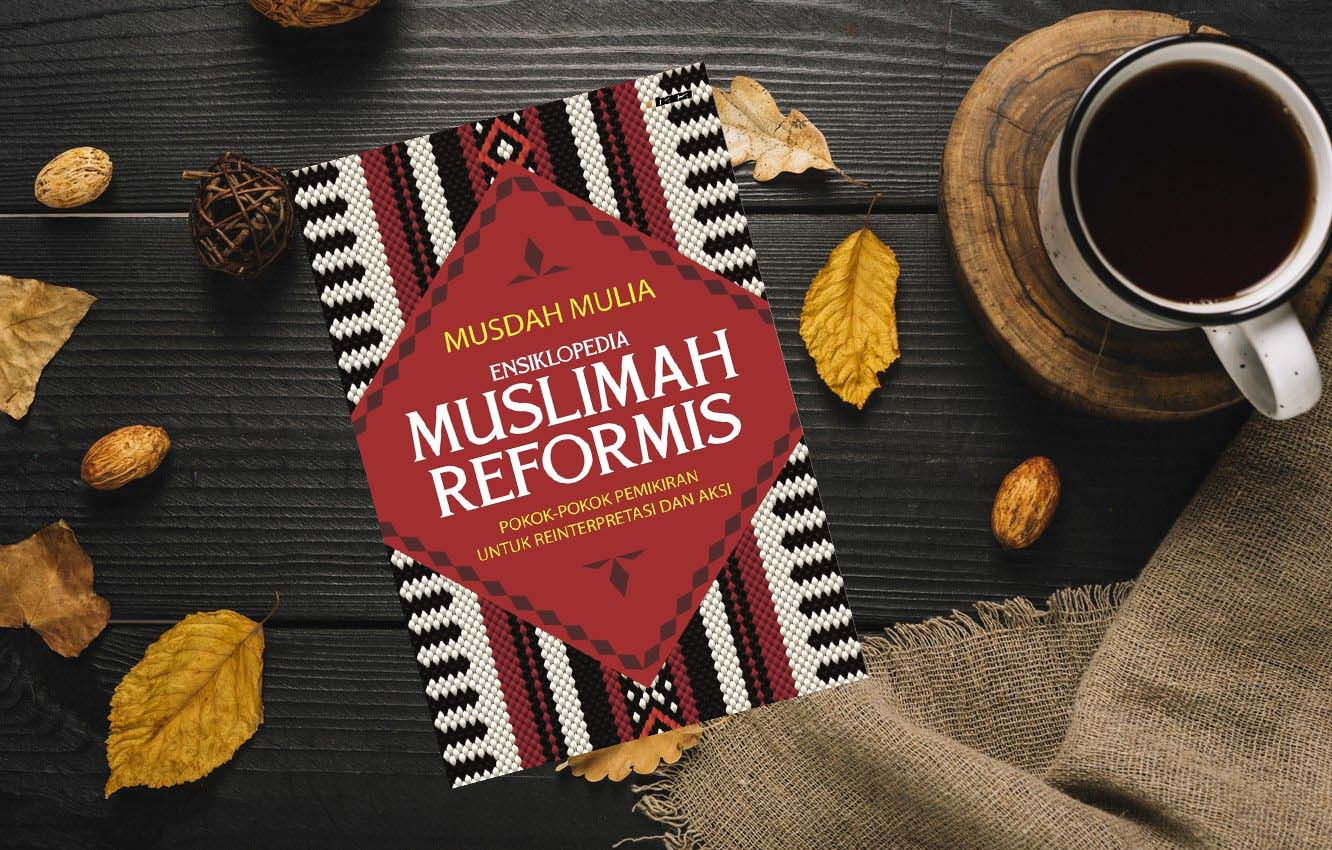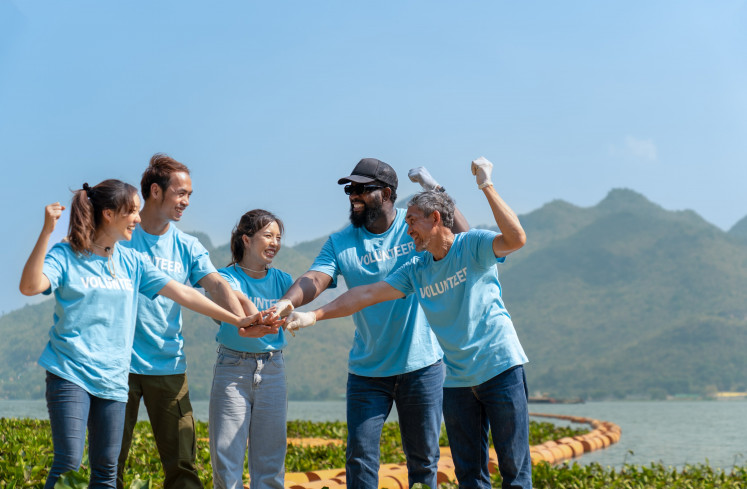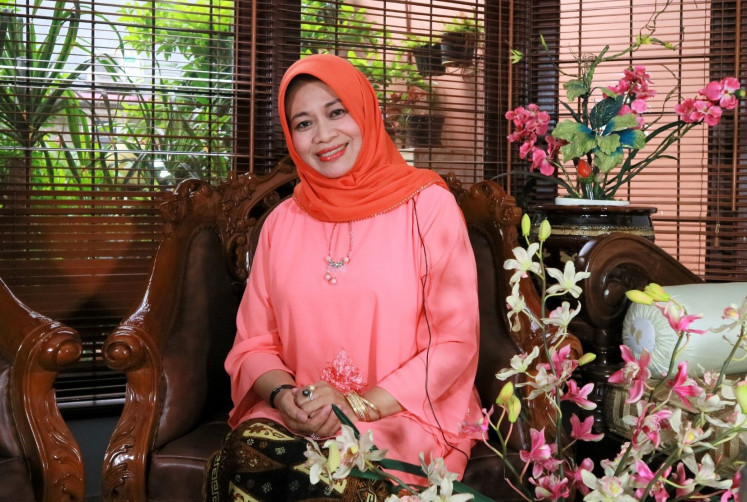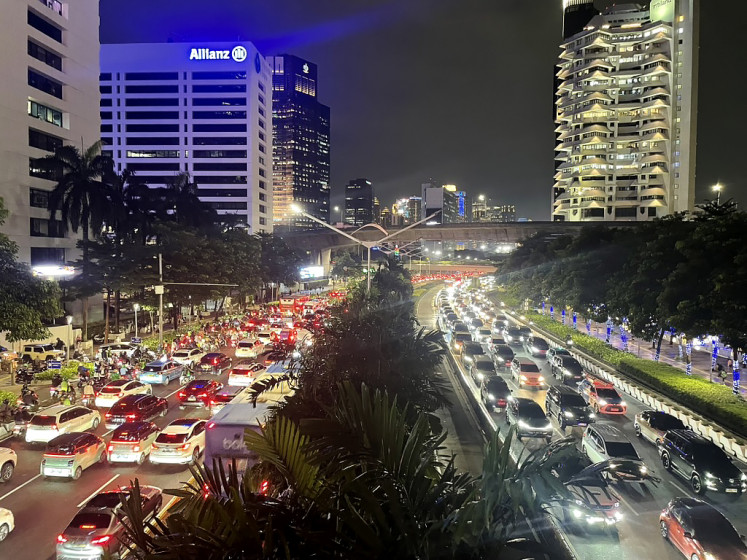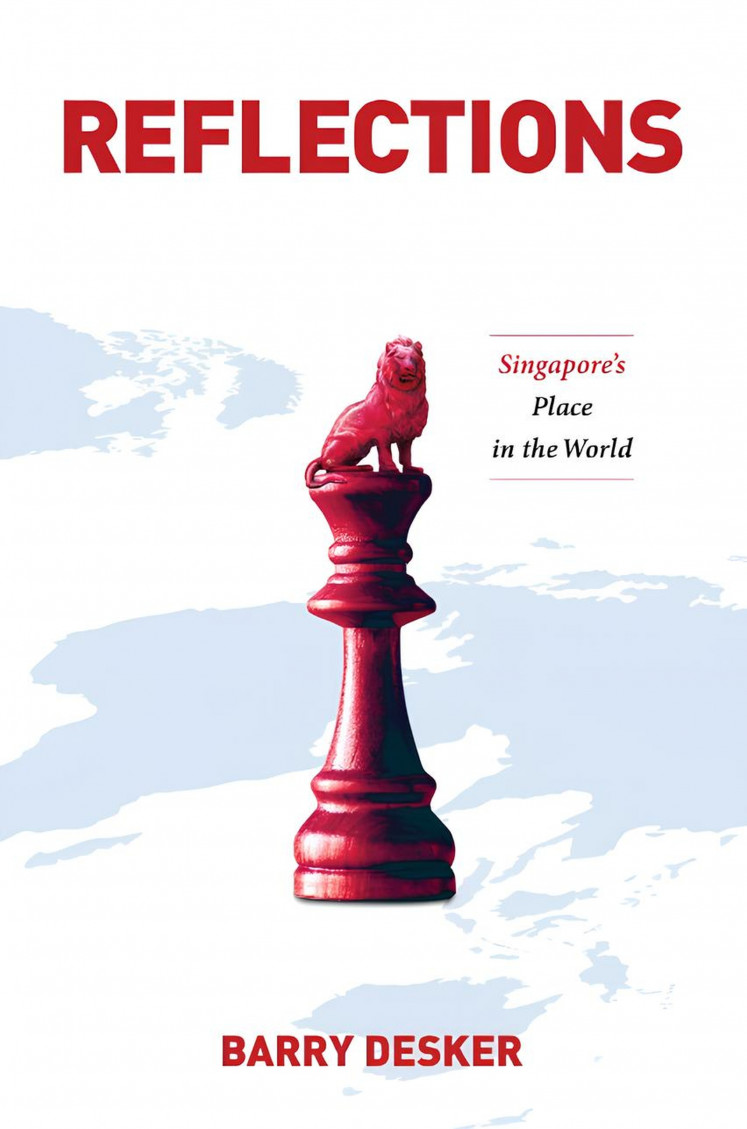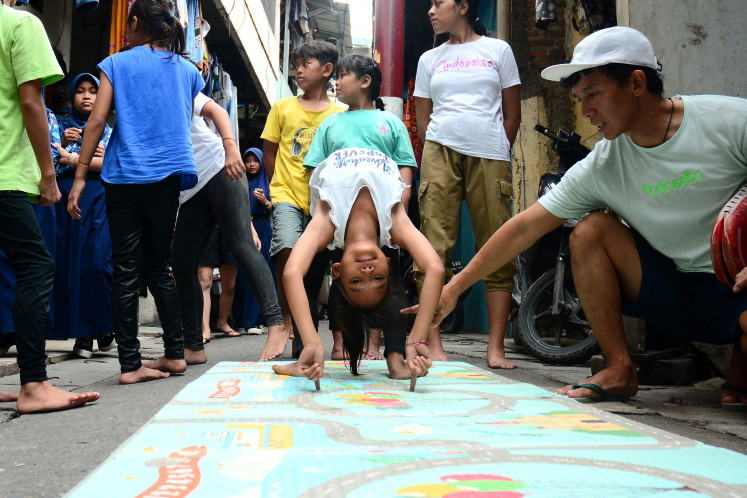Popular Reads
Top Results
Can't find what you're looking for?
View all search resultsPopular Reads
Top Results
Can't find what you're looking for?
View all search resultsMusdah Mulia: Injecting spirituality into human rights activism
Muslim scholar Musdah Mulia is not slowing down in her fight for a more humanistic interpretation of Islam, citing her religious faith as the primary driving force in her activism.
Change text size
Gift Premium Articles
to Anyone
At the age of 62, Muslim scholar Musdah Mulia works more intensely than ever, sometimes for more than 18 hours a day.
She still teaches at the Syarif Hidayatullah State Islamic University in Jakarta and supervises her students’ thesis, while serving as chairwoman of the nonprofit organization Indonesian Conference on Religion and Peace, which promotes interreligious dialog.
However, Ibu Musdah, as her students call her, is mostly known for her strong stance on human rights, including women’s rights.
Husein Muhammad, a cleric who heads the Dar At-Tauhid Arjawinangun Islamic boarding school in Cirebon, West Java, said Musdah’s greatest contribution to the legal and formal aspects of the feminist movement in Indonesia was when she headed a team that drafted a legal document challenging the Islamic law compilation in the early 2000s.
Husein, who was also a team member, said the legal draft sought to criticize aspects of the compilation, which was highly gender-biased.
“Those include the idea that men are leaders of the family, while women should take care of the domestic realm only. The draft also criticized misogynistic perceptions in religion, including those that condone polygamy and violence against women,” Husein recalled.
Musdah’s firm views on human dignity regardless of gender, religion, race and even sexual orientation prompted a backlash when she boldly called for Muslims to stop discriminating and committing violence against the lesbian and gay community.
The US government, meanwhile, bestowed on her the International Women of Courage Award in 2007. She also received the prestigious Yap Thiam Hien Human Rights Award in 2008.
“I’ve been getting hundreds of hate messages via email and WhatsApp,” Musdah told The Jakarta Post, adding that some of the senders had called her a kafir (infidel).
Some people slandered her with fake news. Google her name, and you will find these items aplenty online.
“I once collapsed under the weight of their verbal attacks. Then I remembered that, when I faced a similar backlash in 2004 due to the legal draft challenging the Islamic law compilation, Gus Dur advised me not to react to receiving fitnah,” Musdah said, referring to Islamic scholar and former Indonesian president Abdurrahman Wahid’s advice about responding to life’s trials and tribulations.
At home: Muslim intellectual Musdah Mulia finds comfort at home while leading a tireless fight for the rights of women and minorities. (Courtesy of Musdah Mulia/-)Hateful remarks from other people aside, Musdah has reason to be discouraged by the series of regression Indonesia’s democracy is going through in terms of gender equality and interreligious peace, marked by acts of violence and subjugation in the name of religion.
The National Commission on Violence Against Women (Komnas Perempuan), for instance, revealed that, since the beginning of the Reform Era, Indonesia had issued more than 400 Sharia-based regional bylaws restricting the freedom of women. At the same time, more Indonesians have pledged allegiance to various terrorist groups, unleashing a series of horrific lone-wolf bomb attacks in 2017 and 2018.
Yet, the setbacks our society is going through have not put Musdah under the spell of despair. Recently, she launched a new edition of her Ensiklopedia Muslimah Reformis: Pokok-pokok Pemikiran Untuk Reinterpretasi dan Aksi (The Reformist Muslimah’s Encyclopedia: Essence of Ideas for Reinterpretation and Action).
In this day and age, when people have short attention spans and instead of reading books turn to snippets of information on social media to consider themselves smart, publishing an 850-page book might not be a popular option.
Musdah is willing to go against the grain, driven by her conviction that greater literacy is the best way to fight all the ignorance and superficiality of our social-media-driven culture.
“The first word in the Qur’an is iqra – which commands people to read,” she said. “Reading alone isn’t enough – one also has to read critically to truly comprehend a subject”.
Therefore, she said, she hoped her encyclopedia, comprising 17 entries on gender equality, education, democracy and interreligious peace, among others, could inspire readers to gain spiritual inspiration from Islam to engage in creative and useful endeavors as human beings through humanistic activism, aligned with Prophet Muhammad’s hadith.
She said that drawing from her own personal experience, social activism needed to be injected with a dose of spirituality.
“Oftentimes, our activists lack the militancy that these radical groups have. Can you imagine, by the time our human rights activists’ conduct their weekly webinars, those radical groups have already posted incendiary messages on social media once every second?” she said, adding that we needed to fight these radicals with equal vigor.
Ever the consummate intellectual, Musdah said she always sought to gain new knowledge and insight in the process of writing the encyclopedia.
“For instance, I went to the field to accompany a student whose thesis I supervised, to understand the economic marginalization of fisherwomen in Indonesia. Despite earning money for their families, their ID cards still list them as housewives, thereby denying them of all the social assistance they were entitled to as fisherfolk,” Musdah lamented.
She wrote about the fisherwomen’s struggle in the 11th chapter of her latest book on women as economic agents. She also reads books across multiple disciplines, including the currently popular Homo Deus: A Brief History of Tomorrow by Yuval Noah Harari and Homo Deva: Evolution’s Next Step by Mary Belknap to get a grasp on contemporary issues.
She said she was fascinated by a book called Berpikir Majemuk dalam Matematika (Divergent Thinking in Mathematics) by mathematics professor Iwan Pranoto, co-written by Aditya F. Ihsan. She said the book gave a mathematician’s perspective on social tolerance.
Cultural and systemic challenges to a more humanistic society in Indonesia still abounded, she said, encouraging people to continue working hard despite the burnout some may have experienced at this point – when internet disruptions coupled with political and economic greed seemed to have set our world on fire.
So, to give herself some comfort, Musdah said she loved gardening and feeding her fish in the aquarium. “Watching a school of fish swim toward their food gives me a sense of wonder,” she said. (ste)

